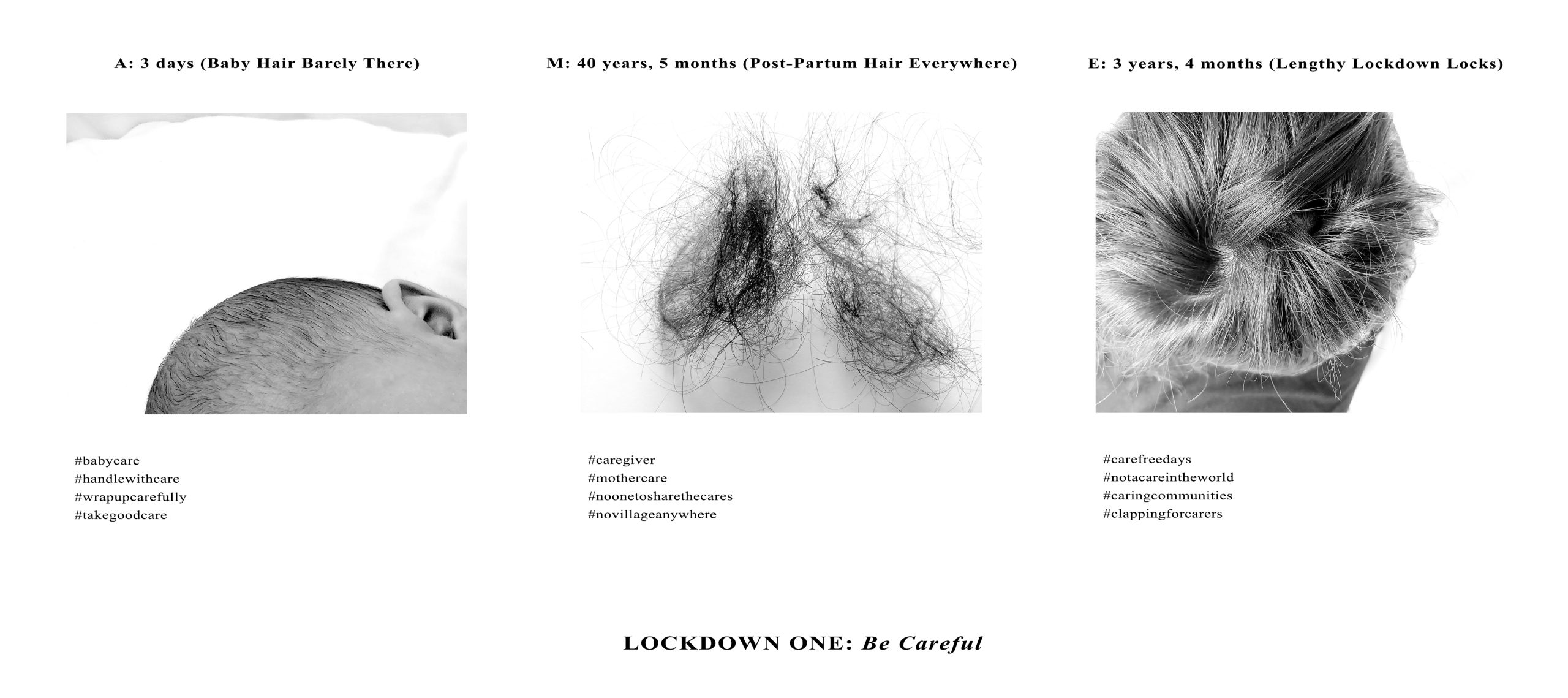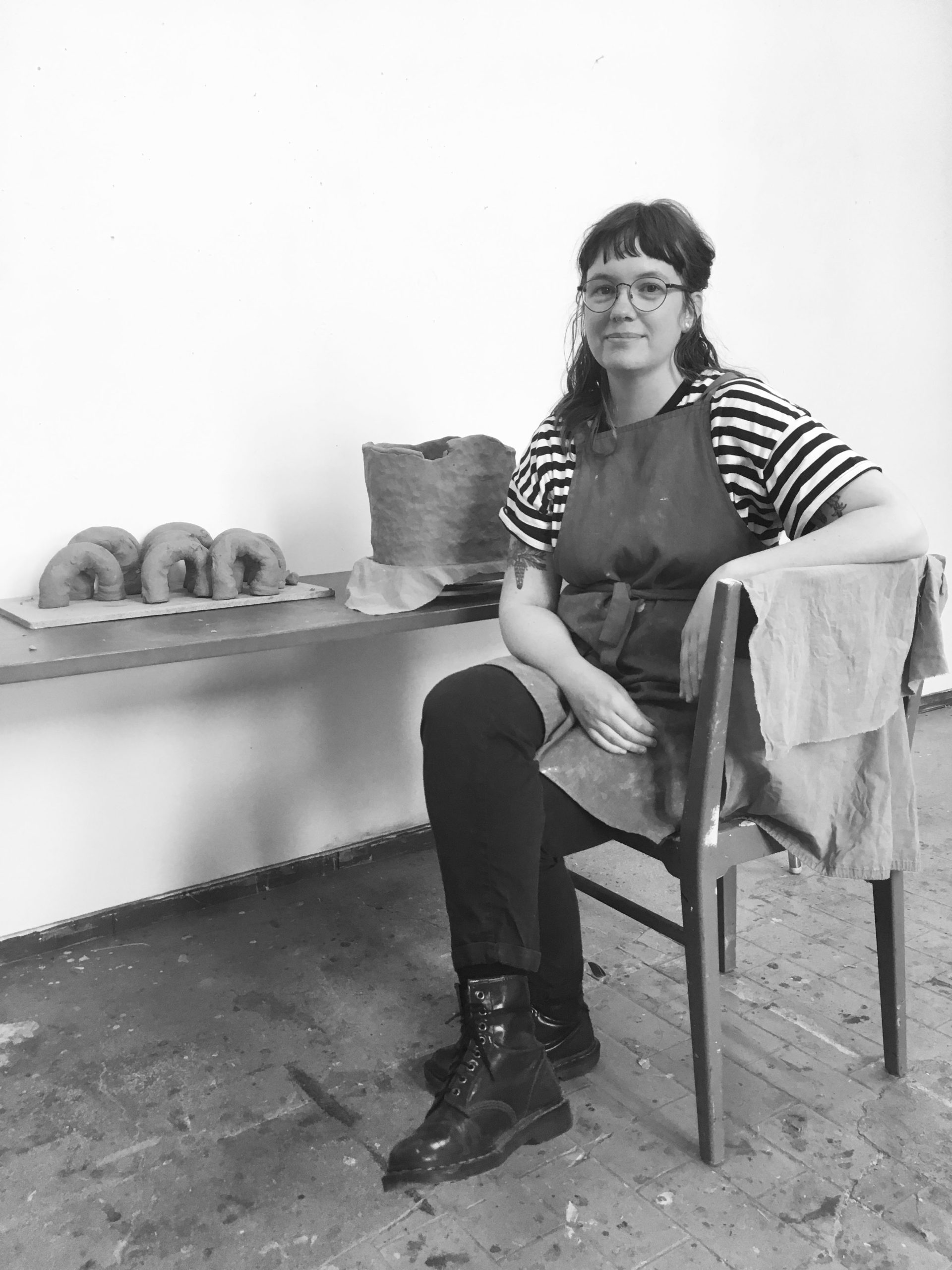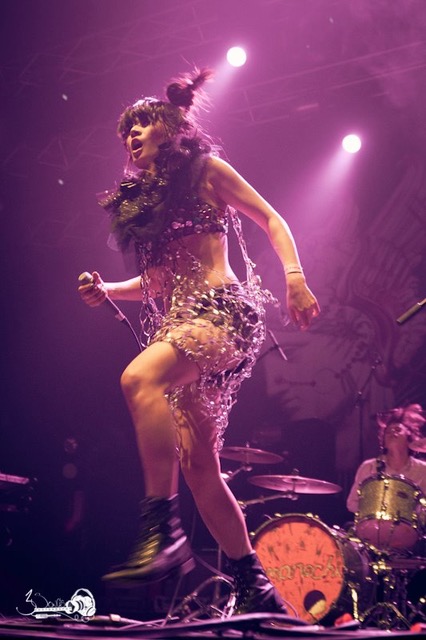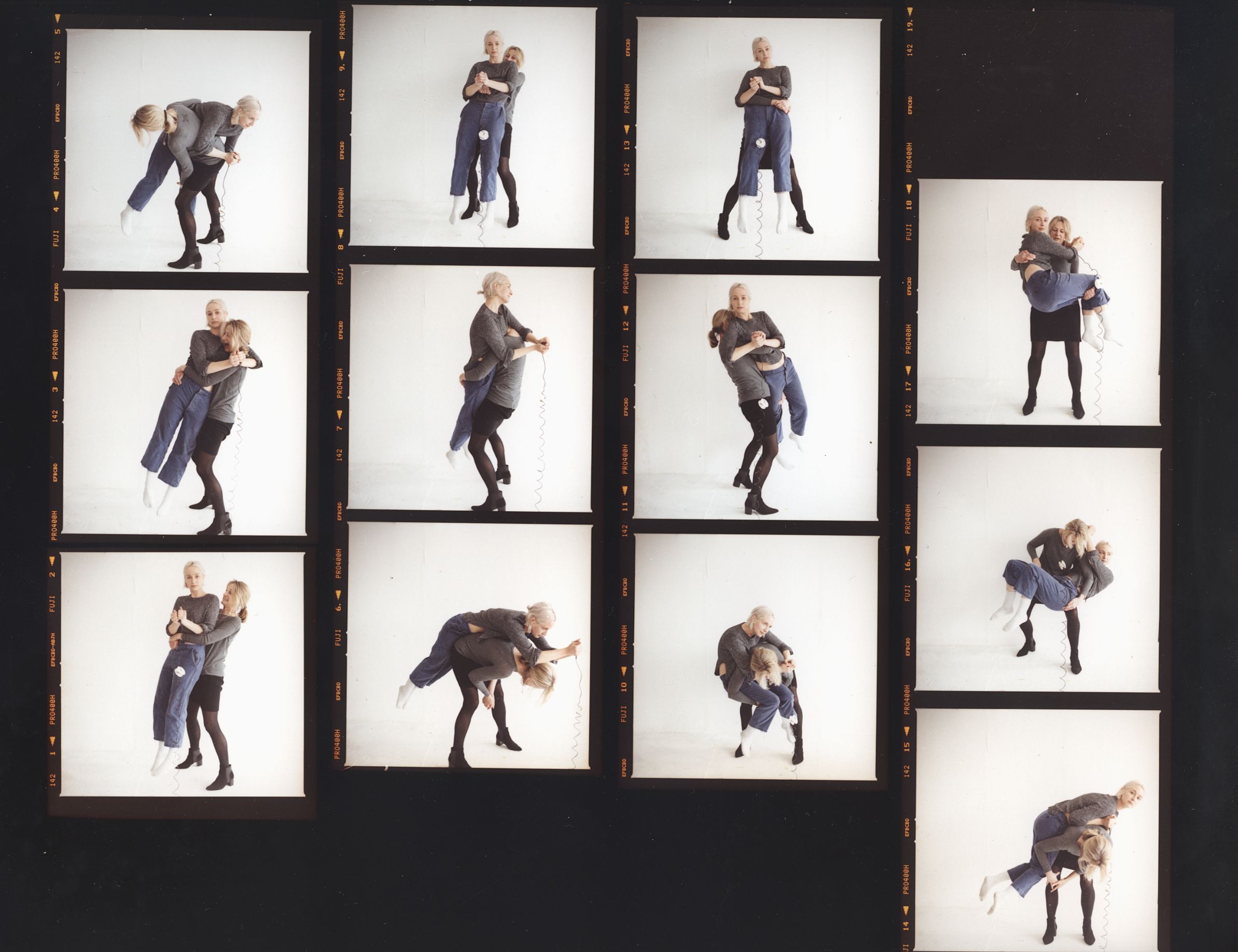
Sally Butcher

Studio portrait
Name:
Sally Butcher
Online presence:
www.sallybutcher.com
Instagram:
@sallybutcher
Describe your art practice and your family dynamic:
I am an artist, lecturer and researcher based in Birmingham, UK.
My work engages with feminist discourse on female subjectivity across intersections of identity, spaces, body and image. I explore these as gendered ”surfaces”, between the binaries of natural/cultural, desired/desiring and inside/outside, working mostly through the mediums of drawing, printmaking and photography.
My practice is underpinned by a critical framework of female embodiment, used to question conventional representations within spheres of the domestic, maternal and erotic.
I am married with two children – my little miracle test tube babies, both of whom were the result of years of infertility and several IVF procedures (which has now inspired a new intense focus in my work)
Have you got any upcoming events or plans that you can share:
So I am in the process of working on re.conceive, a research led project within my practice, for which I recently received Arts Council England funding.
I am just launching on Instagram (@re.conceive) and getting a website sorted (www.reconceive.org). Its aims are to investigate the Invisibility of Infertility within the Maternal Visual Arts. Through this I am trying to explore and visually theorise the transformational process of becoming a (M)Other, challenging traditional reproduction, to reconceive a form of sub-maternal.
I’m working with a range of cultural professionals, artists and members of the public to collect relevant information on ideas of Infertile Embodiment – considering the commodification and mechanisation of the female body; and Identity – looking the infertile female’s challenge to the feminine economy and normative motherhood. I’m hoping to absorb it all into my practice and create lots of new work (I have so many ideas at the moment), but it’s also becoming a project in itself, as lots of new avenues are opening up, which is exciting!
I have also had my piece, “Lockdown Hair, Who Cares?” recently purchased by The New Art Gallery Walsall for their Twenty Twenty capsule collection. It was all about my experience as a mum of two young children in the pandemic through the three UK Lockdowns. I feel really honoured to be part of it and thrilled to have my work in a permanent collection.
In my day job (!), I work part time as Course Director of the Foundation Diploma (pre-degree course in UK) and have recently been selected as a Lead Tutor for the upcoming British Arts Show 9, which means I will be able to share some fabulous new art with my students and get to work with artists at the forefront of the contemporary arts scene in Britain!
Tell us a little bit more about how you developed your technique?
I have always had a deep passion for both the practical and theoretical sides of Art, which was strengthened by my Fine Art (BA) and Cultural Studies (MA) background. I feel I may be finally understanding how these two elements marry together as my art develops more social commentary. I think art should say something, otherwise it’s just decoration, and that’s what I want to create.
Drawing has always been the backbone to my art making. It’s how I learnt to really see properly, which is vital for any artist. I then developed a love for printmaking through my teaching role, where I had to learn quickly so I could teach it to others and I am still excited by the speed at which images come through the press and you suddenly get to see all your hard work pay off.
My interest in photography really emerged after I had my first child and I no longer had the time that drawing demanded but still the desire to make and record. I think of myself as an artist who uses photography, rather than a ‘proper’ photographer, but I love how accessible it is and I relish developing my images further through the digital post editing process. I also love mixing the three processes together, with slightly alternative ways of working.
You’re based in:
Birmingham, UK
Have you lived or studied elsewhere:
I lived in both Leeds and Lancaster whilst studying for my BA and my MA, respectively. I also spent a year in the US, whilst studying abroad at University of California, Irvine.
Has your location affected you, your art practice, perspective and network:
Yes definitely, Irvine is statistically the safest place to live in the US and having lived my life in big bustling cities up until this point, I suddenly found myself lost in this strange, slightly vacuous town. However, the University was fantastic with amazing Art Professors, and the underground student scene was crazy fun.
This taught me that it is always the people that make a place. Studying in the US was also very different from the UK, with a much broader curriculum. I learnt to work more quickly and with a new range of mediums, especially video, which I would love to return to.
Recently, having been stuck inside my house for most of Lockdown, I have learnt that it may not matter where I am in the world, thanks to the power of the internet. I have built up such strong networks in this time, from all over the world. Instagram has been amazing, and I feel I have found my tribe (artist mothers), which I may not have done if things had carried on as normal. That said, I obviously can’t wait for galleries and museums to reopen again (and soft play!) and be able to travel again to see new places.

Infertile Platitudes of Embodied Emptiness, Sonogram 3/9. Digitised monoprint, 2020
What is your story on becoming a mother, and has your approach and methods changed since you became a parent:
My journey into motherhood has taken 8 years, with 4 IVF procedures, 2 wonderful test tube babies, and 1 miscarriage. I was diagnosed with Unexplained Infertility, which is a frustrating finding as it’s where the knowledge stops.
But the world of medical science is fantastic and assisted conception is an amazing human development and, although the IVF process is gruelling, I am thankful for it every single day.
I now have a 1 year old and a 4 year old and not much time for me. It’s a balancing act, which every parent knows. My husband and I share our time where we can. But I do feel motherhood has been a natural progression for me as an artist, as I have always been looking at female subjectivity, so I am relishing the new subject matter.
Practically, photography has become a much bigger presence in my practice since becoming a parent, because of its relative speed and the fact that I don’t need my studio to work on it. It does make me sad when I think how much drawing has taken a back seat and I intend to reinvigorate it soon – thank goodness for childcare! My approach is now little and often and I find myself planning in my head whilst putting children to bed.
I always seem to be multi-tasking – probably not very effectively.

Silent Maternal. Photograph, 2020
How is your experience with the representation of female artists combining motherhood within the art world/your community:
For me it has been a good one. I feel motherhood made me into an artist and I feel more represented now than ever! I have been making for years but I now feel my work is more personal, more passionate, more relatable, and more important. My community is made up of mother artists, rather than just female artists, so I feel we are all on the same page and all out to help each other. In fact, I am so involved with mother artists and female artists in general that when I see a male artist now, I find myself questioning what they are doing here, as I had forgotten they even existed in the art world!?! Unfortunately, I think that may be how some people feel about mother artists – you have to be careful about creating echo chambers.
I am very aware of the limitations of being a female artist who is also a mother. I have been following the likes of Hettie Judah and Kate McMillan and what they are doing with art and motherhood in the UK. I am genuinely shocked at how female artists are still so hugely unrepresented and how those with children find it even harder to find a place. I feel I am now finally making a foray into the world of grants and residencies to support myself as an artist, and I know some will be completely blocked off to me because I am a mother.
This needs challenging, I think through finding like-minded people who will help break down the barriers and make a change, often by creating our own alternative spaces (like Procreate project, Mothers Who Make, ArtistMotherPodcast etc. and yourselves of course). Hopefully the rest of the (art) world will catch up soon!
What advice would you give to emerging artists entering motherhood:
Embrace your support network –both virtual and real! Accept help whenever it is offered, in whatever form, because it is too hard to do it all alone. I have been very lucky because my husband has been around for the past year whilst we’ve been in Lockdown, and my mum has been amazing, which meant I was able to apply for a substantial grant and more in the middle of my maternity leave.
Also though, be kind to yourself, because some days will be so frustrating and you will feel you are failing at being an artist and being a mother. Just have a cry, accept it and start again tomorrow.
What do you want to bring to the table within your art community / Are you missing any discussions, themes etc:
For me, it’s about expanding the term “mother artist”. The mother artist communities I network with are amazing, but there is still a substantial gap in the artwork and in the artists represented that covers issues around trying to become a mother or not being able to be a mother, or alternative ideas of mothering. For me, the term maternal needs to be expanded significantly. I know the mother artist community is a very accommodating one and I have found my initial work on Infertility has been warmly embraced, so I’m excited to keep working on it, hopefully generating discussions that will be welcomed. It is a challenge to show something that is so invisible and so silent, but it is important to reveal it, so all (m)others feel accepted.
Can you describe a moment or artwork that you feel was a turning point in your career:
I made a conscious decision last year that my time having children was over and now it was about really making art – all about having my children – ha! When I received my ACE funding (Art Council England, editors note) at the end of 2020, it felt like acceptance and affirmation that I had made it as a proper artist; getting acknowledgement from a registered body that deals with thousands of artists all the time, that they believed in me enough to invest a lot of money in me. Up until this point I had tried to make money through various creative commercial enterprises, but none of them felt right and didn’t really lift off the ground because I wasn’t putting my whole heart into them.
Now what I am doing feels authentic and things are going well because I’m working hard at it. I feel it comes from an important place personally, and but one which equally resonates deeply with so many.
Do you have daily routines or rituals that help you get into work mode:
I’m pretty bad at getting into work mode. On my two studio days I sometimes find it hard to switch off from teaching and mothering and am easily distracted. I can waste time, thinking I have a whole day ahead of me, so I work a lot in the evenings as well, after children are in bed (although there are still frequent wakings from the littlest one!). I do write a lot of lists, but I’m not sure I ever get through them!
When I’m drawing or editing photos I listen to artist interviews, which I love and keeps me focused.
Where is your studio, where do you have private space to reflect and develop and execute ideas?
I have a fantastic studio at the bottom of my garden. I love having a separate space away from the house to think quietly and be able to leave my stuff out exactly how I want it. I’m not a mother artist who readily welcomes her kids into the studio. I want it to be a separate domain from family, it is my space to think as an artist, which is physically independent (although obviously connected thematically) to my role as mother.
How much time a week do you spend on working/thinking/planning
I have two full days a week on my practice, and most evenings at the moment (so much admin!), but I spend a lot of other time thinking and planning. I tend to leave making to the last minute now, as I don’t have the luxury to just play anymore, but I do find this is more efficient as I can discard ideas mentally very quickly and get to a much better place without trying everything out first.
Do you have someone that inspires your art practise or reflect ideas with:
There have been so many artists that have inspired me along the way as my practice has meandered through different mediums and themes. I have always loved Louise Bourgeois, Paula Rego, Jenny Saville, Francesca Woodman and Helen Chadwick. I’ve just seen Rosy Martin deliver a talk online and she was super inspiring for a possible photography idea I have. Contemporary mother artists that I follow on Instagram inspire me endlessly, especially those who are building organisations and networks for others, like Dyana Gravina of Procreate Project, Helen Sargeant of Maternal Art Magazine, and Adele Reed from my local Mothers Who Make group. I have recently started doing some workshops designed by Jessica Timmis and there are really inspiring new routes in my practice and teaching me to work more spontaneously with unpredictable materials. In terms of reflecting ideas, I am looking to join a mentoring group soon as I think the accountability will be good for me. Currently I use my mum and my husband to bounce some ideas off. They are used to me rabbiting on and help me make sense of what I am trying to say, giving me alternative viewpoints.
How do you relax / where / how do you source your power:
I am pretty bad at relaxing; I feel I can’t afford the time. I would like to read more and really get lost in a book. I think my power comes from walking, which I have always loved – being out in the fresh air, preferably discovering new places. As we haven’t been allowed to do much else for the past year and I had a new baby, walking was what I did, a lot! It’s often only round the block, but it often works wonders for me and it’s when I sort everything out in my head.
(How) Has the pandemic changed your artist practice:
I had a baby in 2020, born 3 days before the first lockdown in the UK. One minute it was normal and we had all the family round, the next, they had to wave at her through the window. With no village, we spent three months as a small family network. Like everyone, some times were very low; I felt robbed of my mat leave, tired with limited help, and angry I couldn’t see my family and they couldn’t see or cuddle my new daughter. But other times were happy; I got to spend more time as a mother of two, my husband was furloughed, and I felt I got to know my four year old son all over again. We all suffered more in the third lockdown, when ironically we had support bubbles, but we also had home schooling, it was cold and dark and everything was completely shut.

Lockdown 1: Be Careful, part of “Lockdown Hair, Who Cares?” triptych, Photography 2020
Unfortunately, my husband eventually lost his job due to the pandemic but that did mean he decided to take on most of the childcare whilst I could get some work done. Being with my children so intensely during this time and assuming extra care duties, although has taken me away from my practice at times, has also fed the content of my work and now it pivots between becoming a mother and being a mother. I have also, at times, found the pandemic surprisingly liberating professionally (as well as crushingly isolating personally) – I have applied for much more than I would have previously because exhibitions have been online and it has been really easy to submit and see my work up (virtually). I’ve also been able to attend all sorts of webinars about art, being hosted all around the world, which has been eye opening.
Could you see yourself as a mentor to another artist / What would you be good at mentoring:
As a trained teacher currently working with older student artists all the time, I feel a lot of my role is mentoring. I love helping students see the patterns in their work and giving them inspirational material when they are stuck, so I think I would be good at mentoring. I would love to work with other artists who are passionate and want to move their work forward, which you don’t always get from students unfortunately. Although it isn’t mentoring, I am considering running online art-based workshops for people suffering from Infertility. I think it is a well-trodden path, but one I never really explored myself as Art was my sacred space that I didn’t want infertility to touch, like it had touched every other part of my life. I think for many people it would be a powerful creative release during an intense period in their lives and I think I would like to facilitate that.
What excites you most about your future:
What excites me most is the hope that I might “make it” as an artist one day, although I’m not sure what making it is. I don’t need to be rich from it, it is more that I would like my presence to be recorded somewhere as someone who made an important dent in the art world. Every day I have to silence my inner critic and challenge my imposter syndrome and I gradually feel like I’m making headway. I made a conscious decision that 2021 was my year of art and I started to put the steps in place to make it happen (with a HUGE amount of support at home) and now things are rolling. A successful funding bid, exhibitions, galleries, interviews, magazine features, book contributions, and working towards applying for a PhD (I do think of myself as a researcher-lecturer-artist and feel excited at the possibility of being an academic). It’s all on a relatively small scale and other artists have this all the time, but for me I’m finding it so exciting! Sometimes think I should have tried to do all this earlier but having children took the best part of the last decade, and without that journey I wouldn’t have such an authentic place from which to make art and I do feel that is what will sustain my career. As women artists we all have so many important things to say, we just need make sure we are seen and heard!

Uncovered Covers. Collagraphic Monoprint of Gendered Surfaces (tights, hairnet, fabric) with Pencil, 2020

Sofi Svensson

Akiko Keex Comanechi
Du kanske också gillar

Terese Molin
11 juni, 2024
Gabby Laurent
6 september, 2022